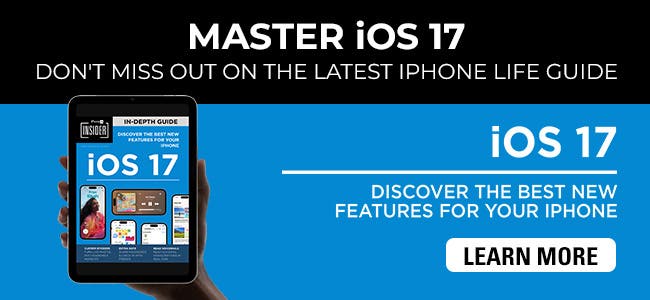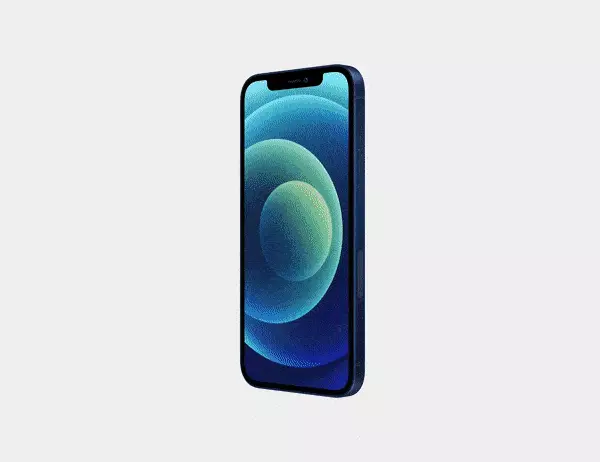Though I've had an iPod since they first came out, it wasn't until Apple announced iTunes U back in 2007 that I remember becoming very intrigued with the use of the iPod for educational purposes. I'd just finished my Masters degree and had been accepted into a Doctor of Arts program at Franklin Pierce University in New Hampshire. I mentioned to one of the faculty that some lectures were now available through iTunes. He listened and was impressed. With that little bit of acknowledgement and a desire to be exposed to more ideas, I became a regular listener to a variety of lectures posted on iTunes U. It was about that time that I also first read The American Council of Learned Societies 2006 report that said that, "digital scholarship is the inevitable future of the humanities and social sciences, and digital literacy is a matter of national competitiveness and a mission that needs to be embraced."
Though it's tough to admit now, when the iPhone first came out, I was a bit uncertain about what it could do. Little did I realize how much my world would change when I got my first iPhone. However, the real eye opener was apps—so many of them were available and they could be loaded onto the iPhone so easily!
None are more impressive to me than those developed for children and the growing number for very young children. As a parent and doctoral student, it didn't take me long to figure out that if I was getting an educational benefit from my iPod and now iPhone, so could my son.

But I still had questions. Who are the people developing these apps, why do they write apps for children, and are these apps as effective in aiding the learning process as iTunes U has been for me?
To work my way through such questions, I went to two of the top children's educational app developers out there, Steve Glinberg of Madison, Wisconsin and Jason Krogh of Toronto, Canada to get their perspectives. Here is my interview with them.
A Developer's perspective
Jason Krogh: I am the founder and director of zinc Roe— an interactive design studio specializing in creating Web sites and games for children. I have been working in this field for about 12 years and established zinc Roe in 2001.
Steve Glinberg: I am an independent software developer and iPhone (and now iPad) enthusiast. I am also a dad of two beautiful girls (Mara is 4 1/2 and Anabelle is 1 1/2). I learned long ago about myself that I enjoy teaching kids, but realized only after Mara was born just how much I truly enjoy it. And how passionate I am about it.
JK: We have worked on many Web-based games and activities for kids. Designing content for preschoolers is especially challenging. Kids this age often don't have the motor control needed to use a mouse without getting frustrated. There are also a lot of challenges with the browser "bumping" into their experience. For example, young kids often end up browsing away from the content unintentionally. The iPhone gets around both of these issues. The touch interface is extremely intuitive for young kids, and there are no controls to clutter up their experience. The iPhone is the first device that brings this technology to a mass market.
SG: In general, I started on the educational software track as a result of how fulfilling I found teaching my daughter to be. As I followed my curiosity and started experimenting with the tools used to develop software for the iPhone, developing software for my daughter and kids her age seemed to be a natural step and a great outlet for me. I don't have formal training in education, so initially I got through by paying very close attention to what resonated with my daughter and what was teaching her effectively. More recently, I have relied more on feedback and insights from a wide range of people—from parents, public and private school teachers who have graciously weighed in on what kids should be learning and when, parents homeschooling their kids who have contacted me, even to Mara's Montessori pre-school curriculum and feedback from her teachers.
I think for software in the education category that is proven to teach effectively, it is important for people to be willing to pay more. Personally, I want to. I'm ecstatic about the things my daughter learns from software I pay $1 or $2 for.
JK: I think they will become more and more prevalent. The Web has proven to be a great way for doing research and collecting facts and figures, but it's not always an ideal way to deliver richer educational content. A good textbook still trumps almost everything I have seen online in terms of providing a logically packaged set of content with a single voice, structure, and consistent quality. I am hopeful that with devices like the iPad, we may see higher quality material distributed digitally.
SG: I'm in the pool of people that think the iPad is a game changer, with a price that is half of what a laptop costs, mobility that far surpasses that of any laptop or netbook, rich interactivity with a touch interface as responsive as, but far larger than that of an iPhone and iPod touch, and powerful and far-reaching connectivity (Wi-Fi, Bluetooth peer-to-peer, and GSM). I think the iPad puts us at the forefront of a whole new generation of educational software that is unlike educational software we've seen to date, even on the iPhone and iPod touch. I think it is here to stay, and personally I think in 5-10 years, we will look back at how education was changed by the introduction of the iPad and wonder how exactly we did without an iPad. I think this applies to students for almost any topic and at any age.
JK: This is a real challenge because, unfortunately, the App Store has a real range in terms of quality. For young kids it's important to look for apps that are attractive, easy to use, and focused. It's more important to find an app that does one thing well than to find one that does five things poorly. Talk to other parents and teachers for recommendations. Look at the developer's Web sites to get a sense of their experience and the thinking that went into the apps. And finally, be sure you try new apps with your kids to find out what works for them.
SG: I think an app's written feedback in iTunes, its position on the education category's top 100 list, its age, and its revision history are good indicators of whether there is substance within an app. Checking out the app's Web site to learn about an app, as well as contacting the author and asking questions about the app, are also great ways people can learn about an app.
I have a personal goal of always responding to and acknowledging an e-mail from a customer at least within an hour of receiving it, if not minutes. It's no surprise that I have an iPhone, and I sometimes shock my customers by responding immediately and at least acknowledging the question or problem. I can't always respond with more than an acknowledgement, but I certainly try to. I think you can learn a lot about an app by how responsive the developer appears to be to your questions or feedback. Responsiveness on the part of the developer doesn't, of course, guarantee that an app will be good, but I think responsiveness and interest in what customers have to say increases the likelihood that customers have had a hand in shaping and improving the app over time

 JK: I really like Sound Shaker ($1.99; app2.me/192) which is part of our Tickle Tap Apps series. It's a simple, open-ended app that acts like an interactive wind chime. I've shared it with toddlers and grandparents, and it always seems to get a good giggle. As for other apps, I am a big fan of the work of Duck Duck Moose. They have a series of apps such as Wheels on the Bus ($0.99; app2.me/178) that pair up interactive animations with kid's music.
JK: I really like Sound Shaker ($1.99; app2.me/192) which is part of our Tickle Tap Apps series. It's a simple, open-ended app that acts like an interactive wind chime. I've shared it with toddlers and grandparents, and it always seems to get a good giggle. As for other apps, I am a big fan of the work of Duck Duck Moose. They have a series of apps such as Wheels on the Bus ($0.99; app2.me/178) that pair up interactive animations with kid's music.
 SG: My favorite app of my own is 123 Color ($0.99; app2.me/2386). I was able to leverage a lot of what I learned from building and enhancing KidCalc over the year and a tremendous amount of KidCalc's code, and use them both as a springboard for 123 Color.
SG: My favorite app of my own is 123 Color ($0.99; app2.me/2386). I was able to leverage a lot of what I learned from building and enhancing KidCalc over the year and a tremendous amount of KidCalc's code, and use them both as a springboard for 123 Color.  My current favorite app that is not mine is definitely gogoDocs ($1.99; app2.me/2387), a Google Docs reader for the iPhone. It has an extremely simple interface. It handles synchronization automatically for you, downloading everything you've read or starred to your phone or iPod touch, and unlike most Google Doc readers in the App Store, it can handle large PDF documents gracefully and with incredible speed.
My current favorite app that is not mine is definitely gogoDocs ($1.99; app2.me/2387), a Google Docs reader for the iPhone. It has an extremely simple interface. It handles synchronization automatically for you, downloading everything you've read or starred to your phone or iPod touch, and unlike most Google Doc readers in the App Store, it can handle large PDF documents gracefully and with incredible speed.
XXXXXXXXXXXX:EEE:XXXX:123 Color is Glinberg's favorite of the apps he's developed. GogoDocs can handle large PDF documents gracefully.
Putting it all together
After spending time thinking through these perspectives from Steve and Jason, I find myself having a better understanding of the potential and limitations of the iPhone and iPod in education. They are still very much in their infancy. As Jason commented, "a good textbook still trumps almost everything." But I agree with Steve that the iPad will be "a game changer," bridging the power and connectivity of the computer, with the portability and ease of use of the iPhone.
From my perspective, the bottom line is always—do these things help us and our children learn, or want to learn? In this light, because the iPhone, iPod, and now iPad are such engaging devices, they do indeed compel us to play, explore our world, communicate, and challenge us to be engaged in the educational process everywhere we go.

